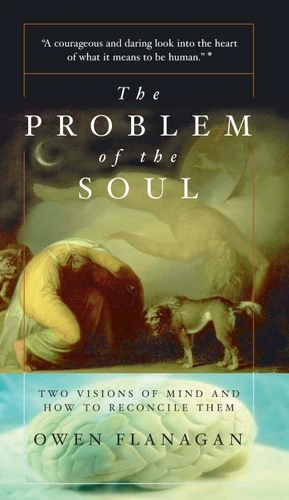The Problem Of The Soul. Two Visions Of Mind And How To Reconcile Them
Par :Formats :
Disponible dans votre compte client Decitre ou Furet du Nord dès validation de votre commande. Le format ePub protégé est :
- Compatible avec une lecture sur My Vivlio (smartphone, tablette, ordinateur)
- Compatible avec une lecture sur liseuses Vivlio
- Pour les liseuses autres que Vivlio, vous devez utiliser le logiciel Adobe Digital Edition. Non compatible avec la lecture sur les liseuses Kindle, Remarkable et Sony
- Non compatible avec un achat hors France métropolitaine
 , qui est-ce ?
, qui est-ce ?Notre partenaire de plateforme de lecture numérique où vous retrouverez l'ensemble de vos ebooks gratuitement
Pour en savoir plus sur nos ebooks, consultez notre aide en ligne ici
- Nombre de pages384
- FormatePub
- ISBN978-0-7867-2531-1
- EAN9780786725311
- Date de parution04/08/2008
- Protection num.Adobe DRM
- Infos supplémentairesepub
- ÉditeurBasic Books
Résumé
Science has always created problems for traditional ways of seeing things, but now the very attributes that make us human -- free will, the permanence of personal identity, the existence of the soul -- are threatened by the science of the mind. If the mind is the brain, and therefore a physical object subject to deterministic laws, how can we have free will? If most of our thoughts and impulses are unconscious, how can we be morally responsible for what we do? If brains and bodies undergo relentless change, how can our identities be constant? The Problem of the Soul shows the way out of these paradoxes.
Framing the conflict in terms of two dominant visions of the mind -- the "manifest image" of humanistic philosophy and theology, and the scientific image -- Owen Flanagan demonstrates that there is common ground, and that we need not give up our ideas of moral responsibility and personal freedom in order to have an empirically sound view of the human mind. This is a profoundly relevant work of philosophy for the common reader.
Framing the conflict in terms of two dominant visions of the mind -- the "manifest image" of humanistic philosophy and theology, and the scientific image -- Owen Flanagan demonstrates that there is common ground, and that we need not give up our ideas of moral responsibility and personal freedom in order to have an empirically sound view of the human mind. This is a profoundly relevant work of philosophy for the common reader.
Science has always created problems for traditional ways of seeing things, but now the very attributes that make us human -- free will, the permanence of personal identity, the existence of the soul -- are threatened by the science of the mind. If the mind is the brain, and therefore a physical object subject to deterministic laws, how can we have free will? If most of our thoughts and impulses are unconscious, how can we be morally responsible for what we do? If brains and bodies undergo relentless change, how can our identities be constant? The Problem of the Soul shows the way out of these paradoxes.
Framing the conflict in terms of two dominant visions of the mind -- the "manifest image" of humanistic philosophy and theology, and the scientific image -- Owen Flanagan demonstrates that there is common ground, and that we need not give up our ideas of moral responsibility and personal freedom in order to have an empirically sound view of the human mind. This is a profoundly relevant work of philosophy for the common reader.
Framing the conflict in terms of two dominant visions of the mind -- the "manifest image" of humanistic philosophy and theology, and the scientific image -- Owen Flanagan demonstrates that there is common ground, and that we need not give up our ideas of moral responsibility and personal freedom in order to have an empirically sound view of the human mind. This is a profoundly relevant work of philosophy for the common reader.



